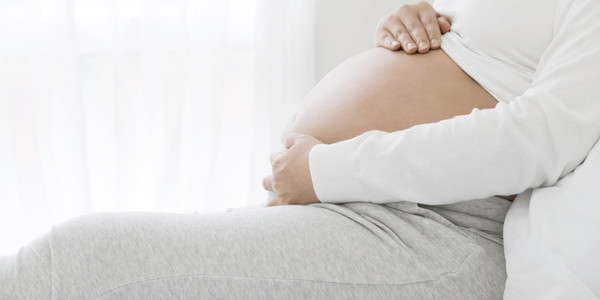

Pregnancy can be a trying time, especially when it comes to potential complications
One of these possible complications that an expectant mummy can experience is preeclampsia (sometimes written as pre-eclampsia). If you don’t know much about it already, we’ll be taking a look at…
- What are the signs and symptoms of preeclampsia?
- What should I do if I suspect that I may have preeclampsia?
- A professional stance on preeclampsia.
- Real preeclampsia stories from our parenting community.
Signs and symptoms of preeclampsia…
Firstly, what is preeclampsia? The NHS website states that…
“Pre-eclampsia is a condition that affects some pregnant women, usually during the second half of pregnancy (from around 20 weeks) or soon after their baby is delivered. Early signs of pre-eclampsia include having high blood pressure (hypertension) and protein in your urine (proteinuria). It’s unlikely that you’ll notice these signs, but they should be picked up during your routine antenatal appointments.”
There’s no known cause currently but there are theories that it is caused by the placenta.
The signs & symptoms can vary between mummies in terms of severity and which are experienced. The NHS advises that mummies and practitioners look out for…
- High blood pressure
- Protein in urine
- Sudden swelling of body parts
- Severe headaches
- Visual disturbances
- Pain just below the ribs (epigastric pain)
- Decreased urine output
- Nausea
- Decreased platelets in your blood
- Shortness of breath
This NHS video on preeclampsia is very informative!
What complications can preeclampsia cause?
Most cases won’t cause any problems for your baby but occasionally in more severe cases, there can be a raised risk of;
- Early delivery
- Progression to Eclampsia, which is life threatening
- Developing HELLP Syndrome, which is life threatening
- Higher risk of complications such as post partum haemorrhage
- Possible growth restriction for baby
- Placental abruption
- Possible damage to the organs if very severe
(These more serious complications are very uncommon, so don’t worry, your hospital will be keeping a close eye on you!)
Who is at risk of preeclampsia?
Mild preeclampsia affects up to 6% of pregnancies, and severe cases develop in about 1 to 2% of pregnancies.
The NHS stated that there are a number of things that can increase your chances of developing preeclampsia, such as:
- having diabetes, high blood pressure or kidney disease before starting pregnancy
- having another condition, such as lupus or antiphospholipid syndrome
- having developed the condition during a previous pregnancy
Other things that can slightly increase your chances of developing preeclampsia include:
- having a family history of the condition
- being over 40 years old
- it having been at least 10 years since your last pregnancy
- expecting multiple babies (twins or triplets)
- having a body mass index (BMI) of 35 or over
If you have 2 or more of these together, your chances are higher.
If you’re thought to be at a high risk of developing pre-eclampsia, you may be advised to take a daily dose of low-dose aspirin from the 12th week of pregnancy until your baby is delivered.
What should I do if I suspect preeclampsia?
If you’re concerned that you’re experiencing some of these symptoms (even if just one), contact your midwife, GP or 111 immediately. You could also contact the Maternity Assessment Unit (sometimes referred to as Maternity Triage) at your booking hospital. Don’t be afraid to seek a second opinion or repeatedly contact them if you’re worried – they are there to help!
What will happen if I am diagnosed with preeclampsia?
First of all, keep calm. Depending on the severity, preeclampsia can be monitored and your blood pressure can be managed with medication. No matter what, even if your baby will need to arrive sooner rather than later, you will be in the best hands and looked after with a tailored plan of action to keep you and your baby well.
The only ‘cure’ is delivery of your baby, but if your condition is well managed and your baby is happy, you’ll be closely monitored for as long as possible until your hospital think that it is safest to deliver.
Our favourite midwife Leanne has told us…
“Trust your healthcare team, they will put an individual management plan in place to ensure your and baby’s safety!”
My Preeclampsia Experience
I personally had preeclampsia with my son, Max, in 2016.
My symptoms started just before my 28 week midwife appointment – my blood pressure started to rise, my blood urates started to rise, and I had a lot of protein in my wee. I ended up being admitted to hospital for testing. From this point, I was admitted at least 3 nights a week until I gave birth, for constant monitoring on the CTG (sometimes called the ‘trace’), 24 hour urine collections, and blood tests. I also had Gestational Diabetes so the extra monitoring and growth scans I had were very reassuring.
At a few points from the 33 week mark, I was warned that I’d need to have my son prematurely if they couldn’t get my blood pressure down; luckily, with rest, fluids and medication, they managed to keep my baby inside. However, after being admitted again at 36 weeks with sky high blood pressure, I was induced the day that I was 37 weeks pregnant (term). The induction was stricter than normal inductions in that they wouldn’t give me as many pessaries or as much time to deliver vaginally due to the preeclampsia. Max was sadly an undiagnosed brow presentation so I didn’t dilate past 4cm during my 18 hours of labour, and it ended in an emergency caesarean.
Luckily, he was perfectly healthy with no ill effects, although I did have a big post partum haemorrhage in theatre which is sometimes caused by preelampsia. My blood pressure as a result dropped very low, but then went up again so I was closely monitored for a few days as occasionally some mummies can still suffer with preeclampsia after their baby is born, or even develop it after the birth!
My advice to anyone in a similar position would be to…
- Try not to panic – stay cool and calm.
- Trust your medical professionals plan but don’t be afraid to ask questions and seek second opinions.
- Monitor your baby’s movements – Kicks Count has some great information on this.
No matter what the plan of action is for you individually, you’re in great hands and in 2020, awareness of and treatment for this condition is excellent. You’ve got this, mama!


.png)








.png)